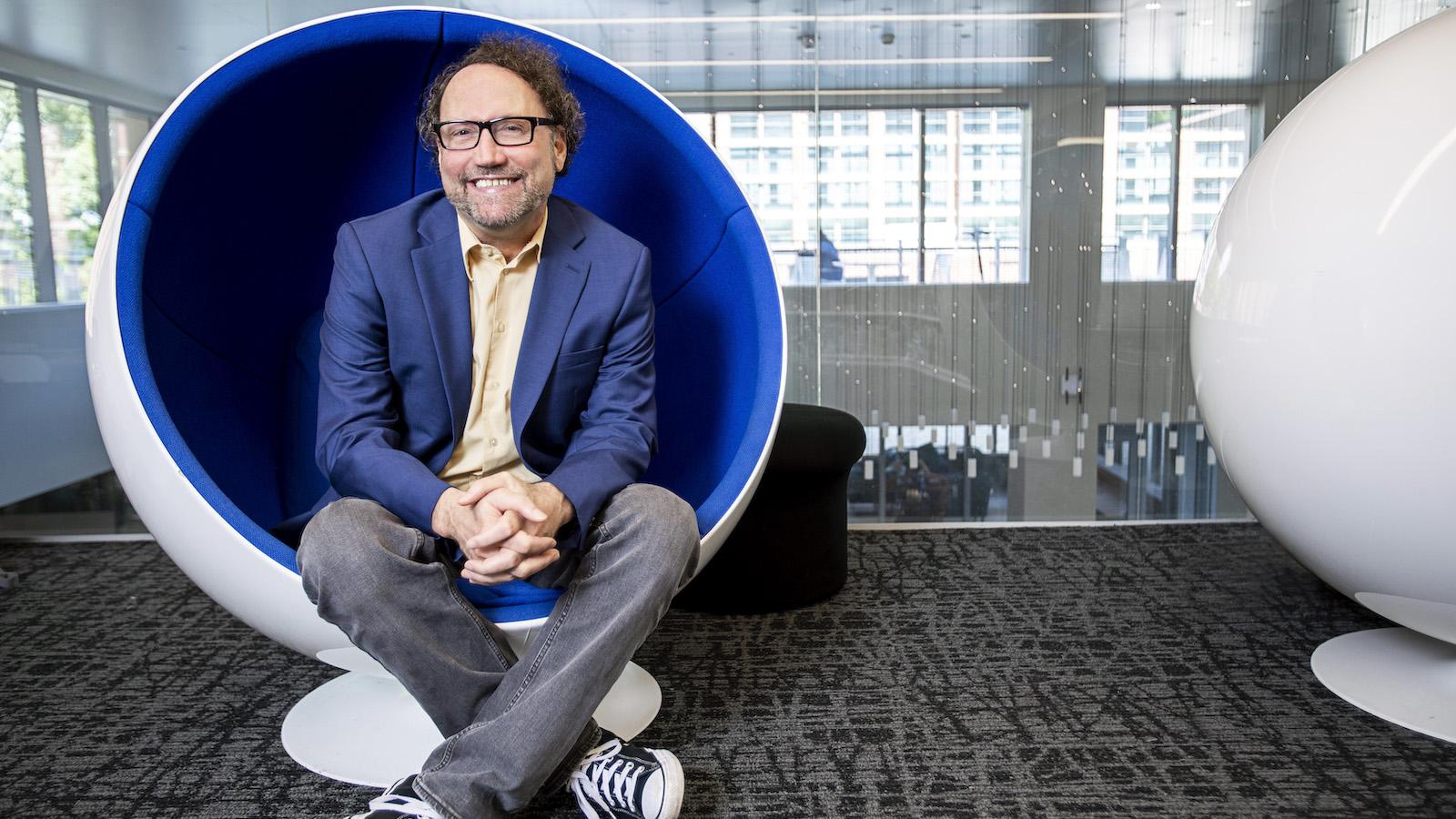Best Charts Expansive Vision for Institute for People and Technology
Aug 10, 2023 —

Michael Best began his new role as executive director of the Institute for People and Technology on Aug. 1, 2023.
On August 1, Michael Best began his new role as executive director of the Institute for People and Technology (IPaT) at Georgia Tech. As the first Interdisciplinary Research Institute executive director with a primary faculty appointment in the Ivan Allen College of Liberal Arts, Best plans to build on IPaT’s greatest strength: the reason that “people” come first in the institute’s name.
“IPaT is and will continue to be the heart and soul of Georgia Tech’s research enterprise, bringing a human-centered approach to understanding the impact and potential of a very broad range of technological innovations,” says Best. “It’s the Interdisciplinary Research Institute that most robustly unites the humanitarians, policy experts, and social scientists of Ivan Allen College with designers, architects, artists, ethicists, scientists, and engineers.”
When IPaT brings together these different mindsets, each with an equal seat at the table, Best says, they can have the greatest possible impact on humanity’s challenges. He cites the explosion of capabilities in artificial intelligence (AI) — and the attendant problems that are also emerging — as one example of how this approach puts people at the center of any inquiry.
“We need to put the questions of responsible and sustainable AI first and foremost,” he says. “Any time we’re thinking about the next deep learning algorithm, we need to have all the right people in the room — ethicists; policymakers; cultural anthropologists; diversity, equity, and inclusion specialists — experts capable of addressing the whole range of issues we’re seeing.”
Understanding Challenges Around the Globe
Best also believes that a global perspective, as well as getting out of the lab and into the field, are key to IPaT’s future. He wants to expand the institute’s international footprint. He has conducted most of his research outside the United States, primarily focusing on understanding the impact of information and communication technologies — such as mobile phones — on social, economic, and political development. He was also director of research for the Georgia Tech-Shenzhen campus and founding director of the United Nations University Institute on Computing and Society in the People’s Republic of China.
“If we try to solve our global challenges from a domestic, blinkered viewpoint, we actually won’t solve them at all,” he says. “You can’t solve a global challenge without understanding the challenge from a global perspective.”
While leading IPaT, Best will retain his appointment as a professor in the Sam Nunn School of International Affairs and the School of Interactive Computing, where he directs the Technologies and International Development Lab. He says that his students are always in the field.
“My students are conducting research, working with community partners, engaged with civil society or community-based organizations,” he says. “It is always life-changing for them.”
A Living Organization
Since its inception, IPaT has gained recognition for its work in health and assistive technologies, in addition to smart cities and infrastructure technology. Best sees IPaT’s focus broadening to include human-centered approaches to a wider range of technological innovations in areas such as inclusivity, sustainability, entertainment and the arts, and others.
In consultation with its stakeholders, faculty, and staff, IPaT will be looking to identify some of these new challenges and potential new directions over the next few months. Best expects they will look closely at areas where people and technology intersect with political and social justice issues.
In Best’s view, this is very much in keeping with IPaT’s history and character.
“IPaT is a living organization and always has been — rethinking, recommitting, and occasionally pivoting,” he says. “We are identifying what the next generation of research challenges will be. We’re a research community, and we know that every once in a while, you need to embrace a new question.”
Stephanie N. Kadel
Ivan Allen College of Liberal Arts




